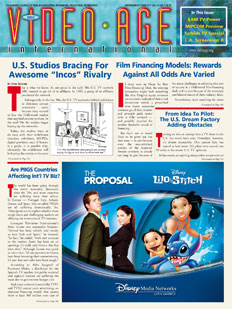September/October 2011
Volume 31 No. 5
My Two Cents
In physics there is accuracy versus precision, and in the news business we have accuracy versus impartiality. In the former case, there cannot be accuracy without precision, however, in the latter case, accuracy requires some degree of impartiality, but impartiality doesn't necessarily require accuracy.
A news story can be accurate, but not impartial. Conversely it can be impartial, but not accurate. For example, reporting only certain, selective facts makes the story accurate but not impartial. On the other hand, the story can balance all sides, but not be accurate because of omissions or because it reports misleading comments. Balanced reporting is tricky if the premise is false; especially if the counter argument is so weak that the false premises become more appealing.
Plus, we know that reality exists only in each individual's consciousness, therefore, technically, there is no such thing as objective accuracy and impartiality (often bundled as “truth”). Impartiality is also different than objectivity and even if both could mean “neutrality,” in many cases they are listed separately.
In an editorial, The Los Angeles Times wrote: “Journalism that serves society does not always spring from objectivity.”
Then, in the news business, is accuracy more important than impartiality? In addition, do impartiality and balanced reporting mean the same thing?
Naturally, the apparent answer is that accuracy and impartiality are equally important, but in media one of those requirements should be more important than the other.
The question then becomes: Which one? My argument is that accuracy is far more important than impartiality, even though the choice is somewhat blurred.
In the U.K., the BBC charter lists both accuracy and impartiality as equal. Similarly, the U.S. Society of Professional Journalists' Code of Ethics' guidelines require that news, in whatever form, must be reported with due accuracy and presented with due impartiality. On the other hand, the American
Society of Newspaper Editors Statement of Principles, originally adopted in 1922 as the “Canons of Journalism,” lists as article IV “Truth and Accuracy” and under it, as article V, “Impartiality.”
Indeed, by some views, impartiality can even be considered an attack on press freedom. Getting rid of impartiality means letting everyone express their opinions, therefore a plurality of views is provided.
By analyzing accuracy in media, we also encounter “responsible journalism” and evidence-based journalism. Responsible journalism could also mean reporting news only when it doesn't do any harm. This was the case with baby food poisoning in China, which was reported after the Summer Olympics so as not to give the country a bad image.
Finally, does a bribe (i.e., paying the news source, no-matter how justified) disqualify the news as both biased and inaccurate?
Accuracy and impartiality in news are also a function of the market, as News Corp.’s FOX News has shown in the U.S. Comedians, such as Jon Stewart of Comedy Central’s The Daily Show, have reported how FOX News fabricates news in order to satisfy its particular audience.
Indeed, biased news is a function of the audience and FOX News simply fills a need of people demanding to hear not necessarily the actual truth, but what they perceive as truth.
Conversely, in Italy, News Corp.’s Sky News 24 is hailed as the most accurate and impartial news service in Italy. This is because in Italy, both state broadcaster RAI and commercial broadcaster Mediaset are controlled by Prime Minister Silvio Berlusconi and Sky News 24 offers an alternative.
Indeed, in Italy, News Corp. has created the most accurate and impartial news service, fulfilling a need, since all the other news programs are now biased in favor of the prime minister.
In these cases, impartiality is a marketing function and a direct consequence of profitability versus public service. On the other hand, it's dishonest to pretend journalists don't have views that can influence their reporting.
Dom Serafini

